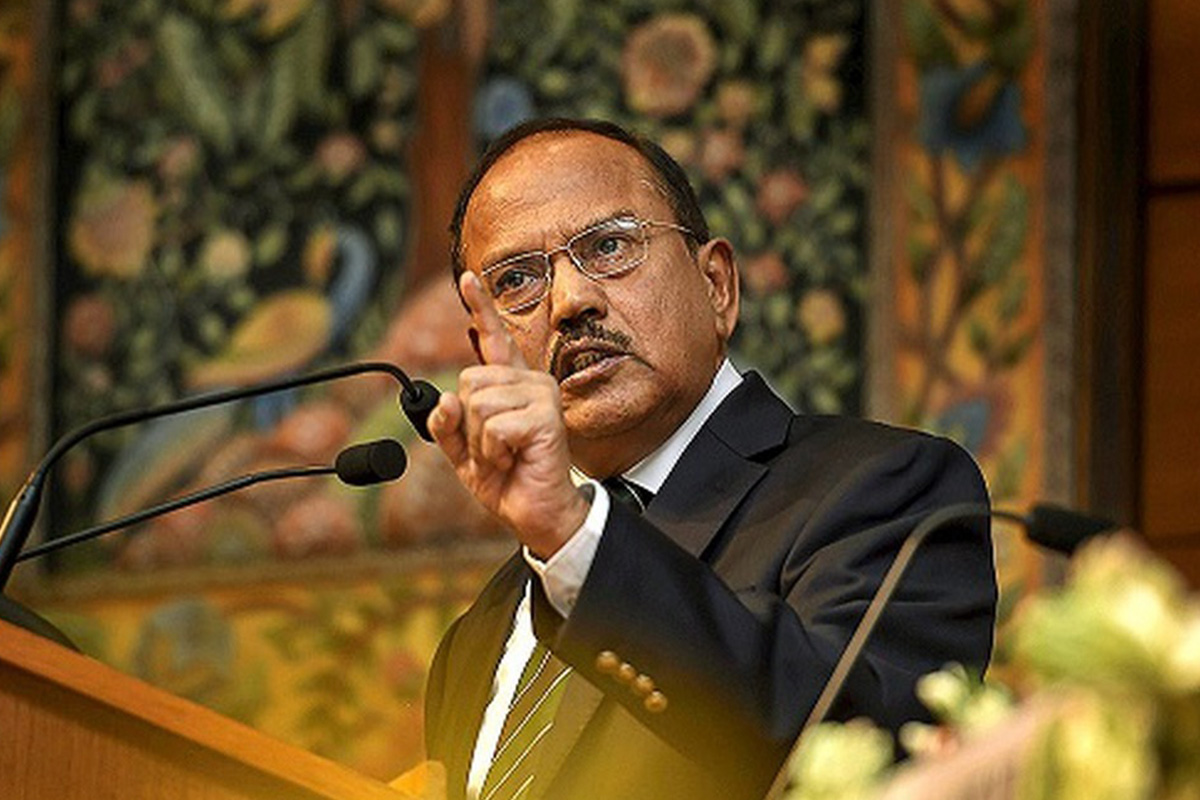NEW DELHI: India’s National Security Advisor, Ajit Doval, took part in the Second Meeting of India-Central Asia Secretaries, hosted by Kazakhstan on Tuesday. The meeting included the participation of the National Security Advisers and Secretaries of the National Security Councils from India, Kazakhstan, Kyrgyz, Tajikistan, and Uzbekistan, while Turkmenistan was represented by its embassy in Astana.
The initial India-Central Asia Meeting of National Security Advisers and Secretaries of Security Councils took place on December 6, 2022, in New Delhi. These meetings stem from the agreement reached during the first India-Central Asia Summit on January 27, 2022, which emphasised the necessity for regular meetings of Security Council Secretaries to address regional security issues.
The meeting covered a range of subjects, including connectivity, terrorism, Afghanistan, and digital public infrastructure. Ajit Doval reiterated India’s unwavering stance on terrorism, emphasising that all forms and manifestations of terrorism pose a significant threat to global peace and security. He emphasised, “Any act of terrorism, regardless of its motivation or cause, is unjustifiable.”
Furthermore, the need for close coordination to combat the serious issue of drug trafficking was discussed. India extended an offer to provide fully funded capacity-building programmes in various areas related to both counter-terrorism and the fight against drug trafficking.
The situation in Afghanistan is a source of concern for all parties involved. Sources with close knowledge stated, “Our common immediate priorities include providing humanitarian assistance, ensuring the formation of a truly inclusive and representative government combating terrorism and drug trafficking and preserving the rights of women, children, and their minorities. India is deeply involved in the humanitarian assistance being provided to the Afghan people?”
The Afghan Cricket Team is currently in India to participate in ICC World Cup matches, as part of an initiative aimed at promoting sports in the country. A source mentioned, “Amul, an Indian company, is the principal sponsor of the Afghanistan national cricket team by India for the ICC World Cup.”
In addition to this, India emphasised its significant focus on enhancing connectivity and economic collaboration with Central Asian nations. It was underscored that connectivity initiatives must be conducted through a consultative, transparent, and inclusive approach.
READ MORE: Nishikant Dubey presses for inquiry into Mohua Moitra’s Lok Sabha credentials breach
These initiatives should uphold the sovereignty and territorial integrity of all nations, conform to environmental standards, guarantee financial sustainability, and avoid creating debt burdens.
Within this context, the lack of direct overland access between Central Asia and India is considered an anomaly. This absence of direct connectivity results from a deliberate policy of restriction enforced by a specific nation.
Other topics of discussion encompassed the willingness to offer technology patented by our Central Bank, known as the United Payment Interface (UPI), at no charge to Central Asian nations for their independent use, specifically concerning Digital Public Infrastructure and Digital Payment Security. India is committed to working closely with Central Asian countries to help them establish defences against cyber threats and develop a secure cyber environment. India extended invitations to the Heads of the Cyber Security Agencies from all Central Asian countries to visit India for a strategic exchange of cyber expertise.
The most robust connection between India and Central Asia lies in the extensive cultural ties and people-to-people connections. India plans to host a seminar within its borders that will bring together prominent scholars and ulemas from India and Central Asian countries. This event aims to foster a deeper comprehension of the history and context of Islam and its role in promoting peaceful coexistence and social harmony in today’s complex world.
READ MORE: TMC’s ‘wait-and-watch’ stance in Moitra-Dubey feud is puzzling political pundits
The ties between India and the Central Asian nations have evolved into multi-dimensional and mutually advantageous relationships, spanning the political, trade, economic, security, and defence domains. These relationships are founded on mutual trust, comprehension, and friendship. Central Asia and India encounter shared security challenges and risks.
Sinister elements operating within interlinked networks pose a threat to our common vicinity. The source concluded by stating, “This meeting is being held when the world is witnessing great challenges. Dialogue is the only answer to settling difference and disputes. Diplomacy must be at the Centre of all conflict resolution initiatives. India stands for deep meaningful and sustainable engagement with all Central Asian countries. The NSAs of Central Asian Countries appreciated India’s proposals to further strengthen India-Central Asia linkage including through capacity building.”









